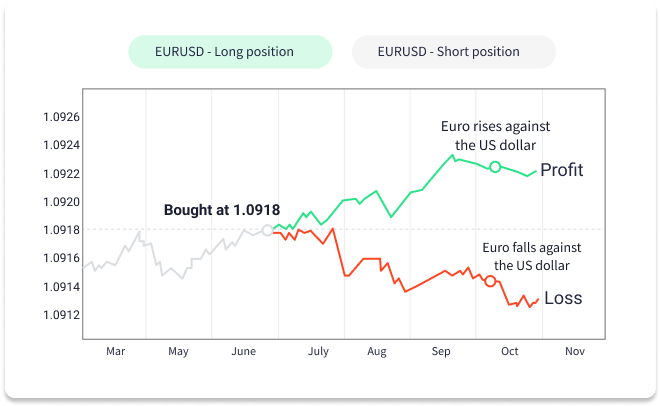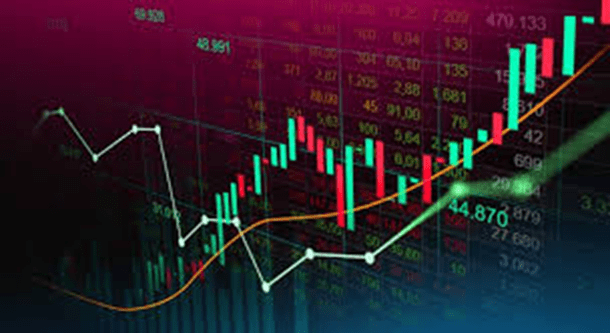Recommended Facts On Choosing Forex Trading Websites
Wiki Article
Top 10 Tips For Choosing A Broker In The Event Of Thinking About Forex Trading Online
The right Forex broker can have a direct impact on your trading experience, security, and success. Here are 10 important guidelines for choosing a Forex broker.
Check Regulatory Status & Reputation
1. You should only use brokers who are regulated by trustworthy agencies like the U.S. CFTC or UK FCA. Regulation ensures the brokers you select adhere to the industry's standards. They also protect you from fraud and your funds are secure. Avoid brokers that are not licensed or have a history of complaints.
2. Costs associated with trading (spreads and commissions)
Brokers earn their income through commissions or spreading (the difference in the cost of buying and selling). Seek out brokers that have honest and transparent charges. A broker with tight spreads for major currency pairs could be more cost effective if you're a frequent trader. Beware of hidden fees like withdrawal charges or a fee for inactivity.
3. Consider the Range of Currency Pairs Offered
Verify that the broker has an extensive selection of currency pairs you're interested in trading including major pairs (like EUR/USD) and exotic or minor pairs if appropriate to your plan. You can diversify your trading options and profit from market opportunities with a wider selection.
4. Review the Trading Platform and Tools
The platform for trading is where you exchange information with the market. Therefore, it should be easy to use, reliable, and have tools that are compatible with your trading style. A lot of brokers provide MetaTrader 4 and MetaTrader 5 platforms, in addition to custom-built software. Before you commit, try the features of the platform, which includes charts and indicators for technical trading.
5. Examine the types of accounts and leverage options.
Brokers offer a variety of account types that come with various spreads, minimum deposits, and leverage. Select a broker that has accounts that are appropriate to your experience, budget, and trading style. Be wary of brokers that offer extremely high leverage, as it can increase the risk of big losses, particularly when you're just beginning.
Check out the Deposit and withdrawal options
Explore the various deposit and withdrawal methods. Also, be sure to check for charges and timeframes. A good broker offers secure, convenient, and low-cost methods, such as bank transfers, credit card payments, or e-wallets that are reputable, such as copyright or Skrill. Beware of brokers with large withdrawal fees or lengthy processing times.
7. Test Customer Support Responsiveness
Reliable customer support is essential, especially for resolving urgent issues such as withdrawal issues or platform malfunctions. You are able to test the service of the broker by contacting them via various methods. (live chat, phone, email) This will allow you to evaluate their professionalism, knowledge and time to respond. Search for brokers offering 24/7 customer support in the event that your transaction is not during normal office hours.
8. Security Measures & Fund Protection
A reputable broker will keep your funds safe. Make sure to check if the broker maintains client funds in separate accounts (separately from the broker's operational funds) and offers security against negative balances. Positive balance protection helps prevent the loss of more than the balance in your account. These safeguards are intended to protect your money in the case that your broker becomes insolvent or there is a market fluctuation.
9. Look for resources that can help you learn and develop as a newbie.
These brokers will provide you with educational tools such as webinars, guides to trading, market research and demos. These can be extremely useful, especially if you're novice to Forex trading or want to refine your knowledge. Demo accounts allow you to test your skills without putting any money on the line. This is a great opportunity to get started.
10. Read Independent Reviews or Ask for Recommendations
The opinions of other traders can give valuable insight into the broker. For example, they could reveal hidden fees, or withdrawal issues, or problems with the platform. Check reviews on reputable forums, trading communities and review sites beware of fake reviews and excessively advertising-based comments. You can also rely on the advice from experienced traders to guide you.
To choose the right Forex broker, you need be mindful of several factors. It is important to be aware of the transparency requirements, regulatory requirements, and the overall environment for trading to choose a broker that will meet your requirements. Read the recommended https://th.roboforex.com/ for more advice including top forex trading apps, forex trading brokers list, fx trade, platform for trading forex, forex trading app, forex app trading, best forex trading broker, currency trading demo account, forex brokers list, forex trading brokers list and more.

The Top 10 Suggestions For Psychological Training When Considering Forex Trading Online
Psychological preparedness is critical in Forex trading because the mental resiliency and control of emotions directly influence decision-making. Here are ten top strategies to help you develop the right mental attitude to prepare yourself for Forex trading.
Recognize Emotions and Control Them
1. Trading can evoke strong emotions--fear, greed, frustration even joy. To be able to control these emotions you must first recognize them. Keep your cool, especially when you lose or win since emotions can lead you to make impulsive choices. Keep in mind that consistency can be achieved through disciplined trading.
2. Trading is risky and can cause losses.
There are always losses for every trader. Accepting that losses are part of the learning and trading processes helps reduce emotional stress. Review your performance over time instead only focusing on the outcome. This can help you overcome delays while you move forward.
3. Be realistic with your expectations
The Forex market isn't a quick-fix scheme to get rich. Many beginners have unrealistic goals like increasing your balance by a large amount. This results in an excessive risk. Set achievable, realistic goals based on your experience and capital, as well as commitment. This helps you stay focused and reduces frustration.
4. Trade according to your plan
A trading strategy outlines your plan of action and risk tolerance. It also defines the criteria you use for making trades. This plan guides you in different market situations. Being on the right track with your trading plan keeps you from making unintentional and uninformed decisions. It also helps to keep you focused, as it prevents impulsive actions.
5. You can practice patience and discipline
Patience is key to finding the best trading opportunities instead of pushing trades because of indifference or frustration. The discipline you develop allows you to stay with your trading plan, even if you are in a state of mind. Be aware that the quality of your trades is what will determine whether you're a successful trader.
6. Reduce Stress Levels by adopting Healthy Habits
To maintain mental peace, stress management is crucial. Exercise regularly, get enough rest, have breaks, and ensure a calm, balanced mind by adhering to healthy lifestyles. Stress can affect your judgment and therefore it is important to take care of yourself to remain sharp and focused.
7. Separate Personal Life from Trading
Be careful not to let personal concerns or stresses spill into your trading choices. It is essential to maintain the mind clear and separate your yourself from your trading perspective. Establish boundaries and refrain from trading during times of high personal stress, as it can result in emotional driven choices.
8. Avoid Revenge Trading
It is typical for traders to want to quickly make up for a lost trade by placing another. This "revenge trading" often leads to more impulsive choices and larger losses. Recover from a loss to reflect on the things that happened. Then, wait for a new well-planned trading opportunity.
9. Learn to be flexible and adjust.
Even the best of strategies can fail. Your resilience will grow by being mentally prepared to adapt and change your strategy instead of adhering to one method. Flexibility helps you be able to avoid disappointment and accept change as part of the process of growth.
10. Keep an Trading Journal.
Keep a record of your trading, including information on your emotions and choices and patterns. Regularly reviewing your trading journal can help identify emotional tendencies, enhance the strategies you employ and improve your mental preparedness.
Forex traders who are mentally ready to trade successfully often have an an edge over those who aren't. By practicing emotional control, patience, and discipline it will improve your decision-making skills and increase your ability to withstand the pressure of market fluctuations. Follow the recommended https://th.roboforex.com/clients/promotions/welcome-program/ for blog recommendations including forex trading forex trading, trader fx, forex broker, forex market online, currency trading demo account, best forex broker in usa, 4x trading, trader fx, platform for trading forex, best forex broker in usa and more.

Top 10 Trading Platform And Technology Tips For Those Who Are Considering Forex Trading Online
1. In order to trade Forex successfully, it is crucial to choose the correct platform and understand the technology involved. Here are our top 10 tips on how to use the latest technology and platforms for trading to enhance your experience.
Choose a platform with a user-friendly interface
Opt to choose an application that is simple and simple to navigate. You should have the ability to access charts easily, manage orders and manage positions without confusion. Popular platforms like MetaTrader 4, MetaTrader 5, and TradingView have easy-to-use interfaces.
2. Improve Internet Connectivity
Forex trading requires reliable, fast internet connectivity. A weak or unstable connection could result in delayed order execution or missed opportunities as well as slippage. If you are experiencing connectivity problems, upgrading your internet service or using Virtual Private Servers (VPS) will help maintain a stable connection.
3. Test Order Execution Speed
Order execution speed is essential especially when you are day trading or scalping. A platform that has quick execution times reduces the chance of slippage and makes sure that you can trade and exit at the prices you intend. Demo accounts are a great opportunity to check the performance of the platform prior to committing.
4. Explore Charting and Analysis Tool
A robust trading platform should feature advanced charting and analysis tools. Look for platforms which allow users to personalize charts, have access to various indicators, or conduct detailed technical analysis. This will allow you to make more informed decisions about trading.
5. Make sure you are aware of the mobile trading capabilities
Mobile trading apps offer flexibility for monitoring and managing trades while on the go. Ensure that the platform offers an efficient mobile application that has the most essential features you require including trading execution, charting, and monitoring of your account, without compromising ease of use.
6. Automated Trading Option
Many traders use automated trading or algorithmic strategies to improve consistency and reduce manual effort. If you are interested in automation, select the trading platform that can support EAs (expert advisors) or bots. MT4 and MT5 for instance, can be used with a range of automated trading tools.
7. Verify Security Features
Trading online requires a very secure and high-security system. Select a platform that utilizes encryption protocols, two-factor authentication (copyright) as well as other security measures to guard your personal information and funds. Be wary of platforms lacking robust security features. They could expose your data and funds to cyber attacks.
8. Search for real-time news feeds and other data
It is crucial to take trades quickly using real-time economic news as well as price feeds. A reliable platform will provide precise, up-to date market data as well as news feeds that are sourced from reputable sources. This allows you to stay informed about events that might impact your trading.
9. Verify compatibility with your trading style
Different platforms suit different trading styles. Platforms that provide fast execution, single-click transactions, as well as other features perfect for traders seeking to scalp are the most suitable. The traders who prefer to swing will choose platforms that provide greater charting, analysis, and trading tools. Be sure to choose a platform that matches your trading style.
10. Test Platform Reliability and Support for Customers
You will find that reliable customer support can be extremely helpful, especially if your platform is having issues or you require technical assistance. When you contact support you are able to assess their expertise and respond. Examine the stability of the platform and uptime. A frequent crash or interruption can negatively impact your trading performance.
By selecting the right trading platform with your needs and understanding the technical aspects of it, it is possible to enhance your trading efficiency and remain better prepared to deal with market changes. You should prioritize security, usability and tools that suit your style of trading. Take a look at the best https://th.roboforex.com/forex-trading/platforms/metatrader4-mt4/ for website recommendations including forex market online, best forex broker trading platform, recommended brokers forex, best currency brokers, forex trading trading, top forex brokers, united states forex brokers, best currency trading platform, foreign exchange trading online, forex market online and more.
